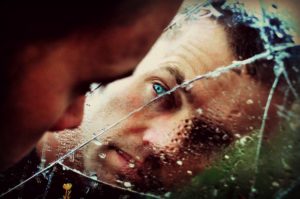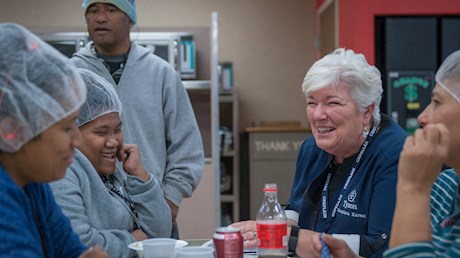“Walk it, like you talk it” is a phrase that admonishes us to live up to what we say, keep our word, or my favorite… practice what we preach.
My fellow brothers and sisters, it is time, whether you are young or old, to live out the Word of God so that society will know what it really means to be a Christian.
It’s important because everyone doesn’t know who God is. Everybody living on this earth may not know what being a disciple of Jesus Christ really means. So, it is up to us to show them what a relationship with God looks like. If we don’t, people in this world will think that living for God and the world is okay.
James 1:22 makes it clear that those who follow God don’t merely become experts at listening to God’s Word alone – with no corresponding action. To believe is to act upon what we hear.
Younger folks, when you are going to school and your friends know that you attend church – whether you mention it or not – you must show them what being a Christian is really all about. You cannot say you love God and live by the world’s standards, too, right?
Are You Hot or Cold?
The Bible talks about being a lukewarm Christian, which means you are stuck between hot and cold. God gives us a choice – be either hot or cold (Revelation 3:15). Choose one. It’s deceiving to ourselves and the people around us when we try to do both. We must accept the Word of God in our minds and agree to it in our hearts.
So, doing what we hear is very important – but are we truly listening? Those who believe stop talking long enough to listen because it is good to take the time to hear with understanding (Mark 4:12). Yet, the faithful don’t stop there. Faith in Christ is not just the map – it’s the actual journey. We need to figure out which way God wants us to go, and then actually go that way when and how He instructs us to do so.
Doers of the Word Know What They Look Like
 In James 1:23, a person who listens to the Word, the message of Jesus, and does not actually do what it says is like a person who looks at his own face in a mirror, and immediately forgets what he looks like.
In James 1:23, a person who listens to the Word, the message of Jesus, and does not actually do what it says is like a person who looks at his own face in a mirror, and immediately forgets what he looks like.
It’s an absurd idea to think that we would be unable to recognize ourselves after seeing our own faces in a mirror. It’s also ridiculous to bother looking in a mirror in the first place if we’re only going to ignore what we see.
Don’t set yourself up for failure! It’s the same concept as a believer with God’s instruction manual in their hands. When God gives us the keys to make it into the Kingdom, and we don’t follow it, we cannot be angry when God rejects us on judgment day.
James’ point is that it must be equally absurd to think that a Christian could hear the Word of God and fail to do what it says. That just doesn’t make any sense. Those who believe the Word of God demonstrate their trust in God by obeying Him. Faith is the substance…those who don’t obey prove that they don’t really trust Him.
Look and Never Forget
In James 1:25, he explains how believers ought to handle their study of the Word of God. We as Christians must look intently into the perfect law – the law that gives us freedom. Understand that when we routinely read and obey God’s Word, we will be blessed in whatever we do.
When James uses the word “law,” he is not likely talking about the Law of Moses. James was one of the leaders of the church in Jerusalem and was likely writing to a very Jewish audience who knew all about that Law. More importantly, though, he was writing to new Christians about what it means to live out our salvation by grace through faith in Jesus Christ (Ephesians 2:8).
James is not calling believers to see legalistic rule-following as the path to being blessed. He is writing to people who believe that Jesus fulfilled the Law of Moses by obeying it perfectly Himself.
That’s the Word we hear and obey because we trust our Father. That law is the perfect law, the law of the love of Christ, which brings freedom.
So, What’s The Play Call?
Remember, as Christians, we are being watched very closely by a society that is very judgmental. We are being watched by people who are waiting for us to fall short of God’s glory.
However, there are also those who are watching us and learning from our lives as followers of Christ. If we are not living by example what we are preaching, then we are all hypocrites. Let’s be true ambassadors for Jesus Christ. Think about it.




